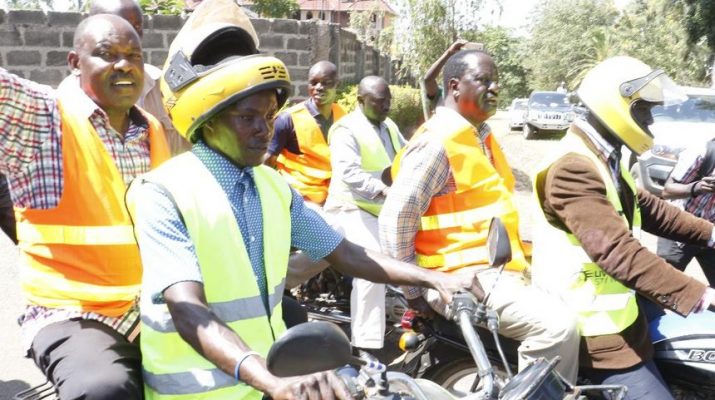MPs will hold a Special Sitting tomorrow where they will make major changes to the use of technology in the general election.
The legislators will seek to change the law to give room for the IEBC to use other means of identification of voters and transmission of results where technology fails.
The issue has already pitted President Uhuru Kenyatta’s Jubilee Party against the Opposition led by Raila Odinga.
The two are presumed to be the key presidential candidates on Election Day.
Yesterday, Majority Leader Aden Duale led Jubilee MPs in accusing Raila of opposing the proposed amendments without any justified reason.
Cord has convened an urgent Parliamentary Group meeting today afternoon to discuss and take a common position ahead of the Special Sitting.
The chairperson of the Committee on Justice and Legal Affairs, Samuel Chepkonga, will introduce new clauses to the Elections Act allowing the IEBC to come up with other ways besides technology to identify voters.
“Without prejudice to the preceding provisions of this section, the Commission shall put in place an alternative and complementary mechanism for identification and transmission of election results that is simple, accurate, verifiable, secure, accountable and transparent,” section 44 (8A) states.
A new subsection, 8B, states that the Commission shall use the alternative mechanism referred to in subsection 8A for identification and transmission of election results only where the technology initially deployed fails.
However, the IEBC will be required to notify the public and all candidates and shall immediately cause the notification to be published in electronic media and in at least two daily newspapers of nationwide circulation, detailing the reasons necessitating the use of the alternative mechanism.
Chepkonga will also move several amendments to the Bill, adjusting major timelines.
Section 44 of the Elections Act, 2011, is to be amended in subsection (4) by deleting the word “eight” appearing in paragraph (a) and substituting the word “six”.
This means that the law will be amended to allow the IEBC more time to procure elections the technology to be used to identify voters and transmit results.
Section 44(4) of the Elections Act currently states: “The Commission shall, in an open and transparent manner procure and put in place the technology necessary for the conduct of a general election at least eight months before such an election.”
On Saturday, Cord leader Raila Odinga warned that the Opposition will not allow any attempts to review the law negotiated by the joint parliamentary select committee on the IEBC.
Odinga maintained that the law is irreversible, noting that it was arrived at after lengthy consultation between all the stakeholders and ICT experts.
Duale will move an amendment to the Election Laws (Amendment) (No.3) Bill, 2015, postponing the requirement that candidates for MCA should have a university degree.
“(1A) Notwithstanding subsection (1), this section shall come into force and shall apply to qualifications for candidates in the general elections to be held after the 2017 general elections,” the new clause states.

